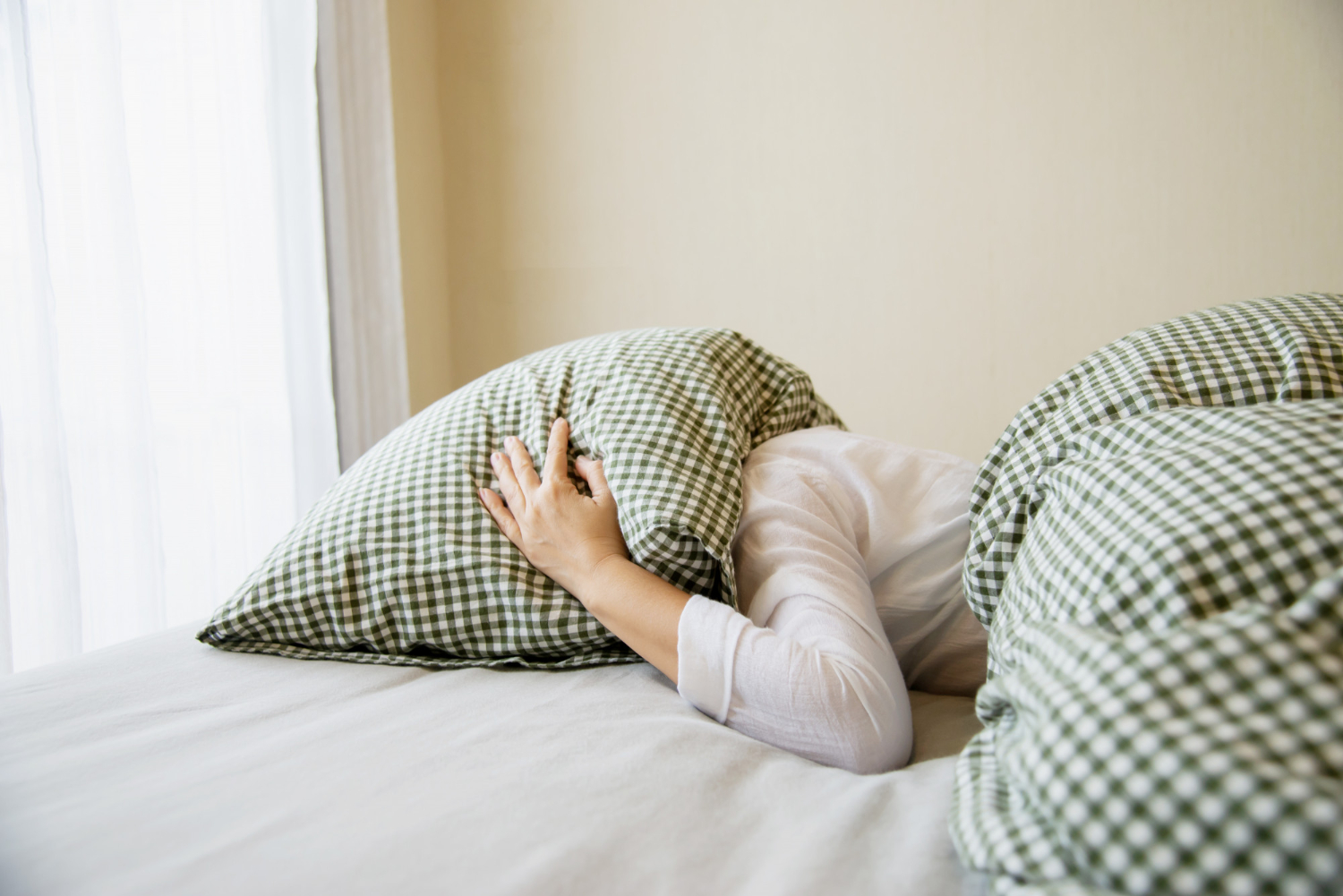In today's fast-paced world, stress has become an all-too-familiar companion for many of us. Juggling work, personal life, and various responsibilities can leave us feeling overwhelmed and anxious. One area where stress can have a significant impact is our sleep.
In this blog, we will delve into the relationship between stress and sleep, understanding how stress affects our ability to get a good night's rest. Moreover, we will provide you with practical strategies to manage stress and improve the quality of your sleep.
How Does Stress Impact Sleep?
Stress can make it difficult to fall asleep: When we're stressed, our minds tend to race with thoughts and worries, making it challenging to relax and drift off into sleep.
Stress can lead to fragmented sleep: Even if we manage to fall asleep, stress can cause us to wake up frequently during the night, disrupting the natural sleep cycle.
Stress can result in nightmares and vivid dreams: Stressful events and emotions can infiltrate our dreams, causing disturbances that affect the overall quality of our sleep.

What are Some Signs of Stress?
Physical symptoms: Stress can manifest as headaches, muscle tension, stomachaches, or general fatigue.
Emotional changes: Feeling irritable, anxious, overwhelmed, or moody can be signs of stress.
Sleep disturbances: Difficulty falling asleep, restless sleep, or waking up feeling unrefreshed may indicate high levels of stress.
Cognitive challenges: Trouble concentrating, racing thoughts, or memory problems can be linked to stress.
What are the Effects of Poor Sleep on Stress Levels?
Increased stress reactivity: When we don't get enough sleep, our ability to handle stress diminishes, and we become more reactive to challenging situations.
Impaired emotional regulation: Lack of sleep can make it harder to regulate emotions effectively, leading to increased stress levels (1).
Reduced cognitive performance: Poor sleep affects our cognitive functions, such as attention (2), memory, and decision-making, making it harder to cope with stressors.
Can Stress Cause Insomnia?
Yes, stress can contribute to insomnia. Insomnia refers to difficulty falling asleep, staying asleep, or experiencing non-restorative sleep chronically (3). Stress can disrupt the delicate balance necessary for a good night's sleep, leading to insomnia.
Psychological factors play a role: Stress can trigger anxiety and worry, which can further perpetuate the cycle of insomnia.
Addressing stress can alleviate insomnia: By managing stress effectively, we can reduce its impact on our sleep and improve our ability to get the rest we need.
How Can You Reduce Stress to Improve Sleep Quality?
Engage in relaxation techniques: Practices such as deep breathing, meditation, or progressive muscle relaxation can help calm your mind and body before bedtime.
Establish a consistent sleep schedule: Maintaining a consistent bedtime and wake-up time daily aids in synchronizing your body's natural rhythm, leading to improved sleep quality.
Exercise regularly: Physical activity can reduce stress levels and improve sleep quality. Strive to engage in moderate exercise for a minimum of 30 minutes on a majority of the days throughout the week.

Practice stress management techniques: Find activities that help you unwind, such as journaling, listening to calming music, or engaging in hobbies you enjoy.
Seek support: Talking to a trusted friend, family member, or therapist can provide you with emotional support and help you navigate stress more effectively.
How Can You Create a Stress-free Bedtime Routine to Promote Better Sleep?
Establish a wind-down period: Dedicate at least 30 minutes before bed to relaxing activities that signal to your body that it's time to sleep. This can include reading a book, taking a warm bath, or listening to soothing music.
Create a sleep-friendly environment: Make sure your bedroom is dark, quiet, and at a comfortable temperature. Consider using blackout curtains, earplugs, or a white noise machine if necessary.
Limit exposure to screens: The blue light emitted by electronic devices can interfere with sleep. Avoid using smartphones, tablets, or laptops at least an hour before bed.
Avoid stimulating substances: Limit or avoid caffeine, nicotine, and alcohol, as they can disrupt sleep patterns and increase feelings of stress.
Practice good sleep hygiene: Keep your bedroom clean and clutter-free, invest in a comfortable mattress and pillow, and use your bed only for sleep and intimacy.
What are Some Natural Remedies for Stress and Insomnia?
Herbal teas: Chamomile and lavender teas have calming properties and can promote relaxation before bedtime.
Aromatherapy: Essential oils like lavender, bergamot, or chamomile can be diffused or applied topically to create a soothing environment conducive to sleep.
Relaxing bedtime rituals: Taking a warm bath, using a weighted blanket, or practicing gentle stretching or yoga can help relax the body and mind.
Mindfulness and meditation: These practices can help reduce stress and promote a sense of calm, making it easier to fall asleep and improve sleep quality.

Does Stress Make You Sleep a lot?
Stress can have different effects on sleep duration. While some individuals may experience difficulty falling asleep or staying asleep due to stress, others may find themselves sleeping more than usual as a coping mechanism.
Excessive sleepiness can be a sign of chronic stress: If you feel constantly fatigued, despite getting what seems to be enough sleep, it could be a result of stress-related exhaustion.
Prioritize balanced sleep: Aim for 7-9 hours of quality sleep each night, and if you're consistently sleeping too much or feeling excessively tired, consider seeking guidance from a healthcare professional.
What Position is Best for Stress Sleep?
There is no one-size-fits-all position: The best sleep position for stress depends on personal comfort and any underlying medical conditions.
Side sleeping: This position generally promotes better spinal alignment and can alleviate discomfort for most individuals.
Use supportive pillows: Properly supporting your head, neck, and spine with the right pillows can enhance sleep quality, regardless of the position you choose.
Experiment and find what works for you: Try different positions and pillow setups to identify what provides the most comfort and relaxation for a restful sleep.
In conclusion, stress can significantly impact our sleep quality, leading to a vicious cycle that affects our overall well-being. By understanding the connection between stress and sleep, recognizing signs of stress, and implementing effective stress management strategies, we can improve the quality of our sleep and enhance our ability to cope with life's challenges. Remember, prioritizing your sleep is crucial for maintaining optimal physical and mental health.
References:
- https://www.ncbi.nlm.nih.gov/pmc/articles/PMC6122651/
- https://www.frontiersin.org/articles/10.3389/fnsys.2014.00046/full
- https://www.nhlbi.nih.gov/health/insomnia#:~:text=Insomnia%20is%20a%20common%20sleep,feel%20sleepy%20during%20the%20day













